
Author Interview: Lavender House by Lev A.C. Rosen
We have read, and hopefully screamed loud enough about Lev’s last two YA books that we absolutely loved, and now we get to read an adult historical comp’d to a queer Knives Out! Lavender House by Lev A.C. Rosen releases this Tuesday the 18th, and here is your last minute reminder to preorder this queer, gothic, locked room mystery, that everyone is raving about! It is not too late to preorder and you can submit proof for an amazing signed postcard that is a historical soap ad!
Many thanks to Tor/Forge and Macmillian Audio for the advance copy!
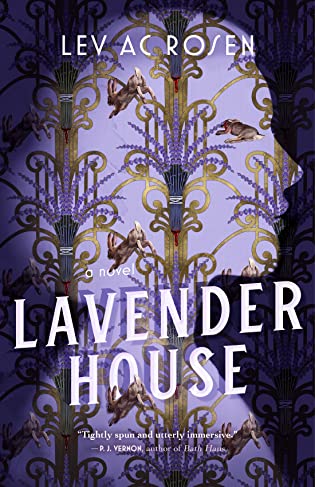
Lavender House
by Lev A.C. RosenPublished by: Forge Books
on October 18, 2022
Genres: Adult, Historical Fiction, LGBTQIA+, Mystery, Thriller
Bookshop
Goodreads
A delicious story from a new voice in suspense, Lev AC Rosen's Lavender House is Knives Out with a queer historical twist.
Lavender House, 1952: the family seat of recently deceased matriarch Irene Lamontaine, head of the famous Lamontaine soap empire. Irene’s recipes for her signature scents are a well guarded secret—but it's not the only one behind these gates. This estate offers a unique freedom, where none of the residents or staff hide who they are. But to keep their secret, they've needed to keep others out. And now they're worried they're keeping a murderer in.
Irene’s widow hires Evander Mills to uncover the truth behind her mysterious death. Andy, recently fired from the San Francisco police after being caught in a raid on a gay bar, is happy to accept—his calendar is wide open. And his secret is the kind of secret the Lamontaines understand.
Andy had never imagined a world like Lavender House. He's seduced by the safety and freedom found behind its gates, where a queer family lives honestly and openly. But that honesty doesn't extend to everything, and he quickly finds himself a pawn in a family game of old money, subterfuge, and jealousy—and Irene’s death is only the beginning.
When your existence is a crime, everything you do is criminal, and the gates of Lavender House can’t lock out the real world forever. Running a soap empire can be a dirty business.
Interview:
1. Your most recent books, Jack of Hearts and Camp, are YA contemporary stories. How did your writing process differ in writing adult historical Lavender House?
I’m a big believer in the idea that every book writes itself differently. Just because you’ve finished one doesn’t mean the next one works the same way. So there were a lot of differences. An adult isn’t a teen, a contemporary voice isn’t a period one. But those were obvious going in. I also did a lot of research beforehand, tried to understand exactly what the time period and location were like. It’s hard, not just because there’s SO many books to read, but because to just write a simple thing “he drove from x to y” becomes a complicated question – what cars, was there parking there, could you drive easily that way, and so on. So having to stop and start more often to look stuff up was kind of frustrating. But it was fun, too, because sometimes a bit of research would inspire a new idea and the book would end up going in a new direction. So it all worked out great. But things are always different. Every book writes itself differently.
2. What was research like when writing a historical setting? Were there things that surprised you?
Women couldn’t legally tend bar in the the state of California until the 70s. They could own bars – just not tend them. That one is wild to me, especially because the reasoning seems to have been that women might drug men and take advantage – very backwards. Though I found that out while writing the sequel (out fall 2023), so I’m not sure it counts. Some stuff that surprised me is that even with all the research into historical law, there are still parts that are fuzzy in how they were enforced – maybe enforced differently block to block – which isn’t surprising in itself, exactly, that’s still true today after all – but was surprising just because we think of history as more monolithic than that – or at least I did. But what I discovered was that some stuff varied so much I could do whatever I wanted and get away with it. I’m sure some will disagree, say “this was the law” etc, but what laws people cared about and when… for example, one thing I found out while writing Lavender House is how queer the military was during the second world war. The navy was that I looked at especially. Some ship’s captains really did not care if you were fully just making out on deck – as long as you weren’t blocking the line of sight for looking for enemy ships. But on other ships, you had to be incredibly careful or you’d be sent to a shrink, locked in a psych ward for years. It just depended on the captain. On who saw you and if they cared. This changed as the war went along and the military became more concerned with queer soldiers, but for a time, if you were on the right ship, you might have had more sexual freedom at war than you did before the war.
3. What do you hope readers take away when finishing Lavender House? How do you want them to feel?
I know it sounds odd to say about a noir in which queer people are forced to hide themselves, beaten and scared, but I want people to come away with a feeling of hope. I don’t want to get to far into spoiler territory, but I think that Andy’s journey as he solves the case takes him from someone who feels like he never got to have a life to someone realizing he can not only have one, but can have one with love, family, community – that that’s what will make his life worth it, even if it’s a life in the shadows. I think of it as a sort of “soft noir.” I’m not trying to be Mickey Spillane here. My influences, when it comes to noir, are mainly Chandler – whose works were deeply cynical, but also were about striving to be good in the face of a world that rewards evil, which is sort of hopeful – and classic noir cinema, which was actually sometimes very hopeful (partially because of the Hayes Code), and often kind of romantic. I think of my favorites like The Big Sleep and Laura, and those are films that end with terrible choices being made – but also with couples, standing together against the darkness. That’s the sort of vibe I want people to feel at the end of Lavender House – that we, as a community, can stand together against the darkness. Which is a message that’s more relevant than ever these days, as library protestors, school boards and politicians try to force queer people to hide themselves and their stories again. So I hope people see that and come away more willing than ever to stand together against the darkness.
Join Lev on Tour!
Starting with a virtual event on Monday October 17th!

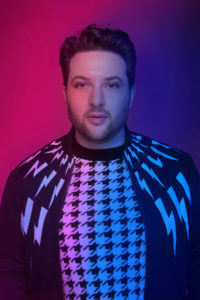


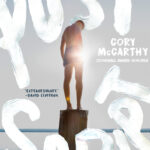
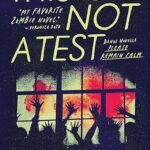

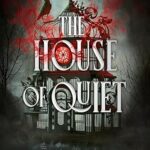





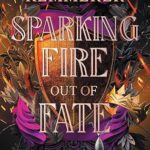
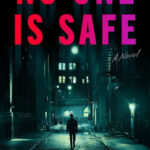
[…] are in full interview mode! We interviewed Jamie Pacton, Lev Rosen, and Sara Bennett […]